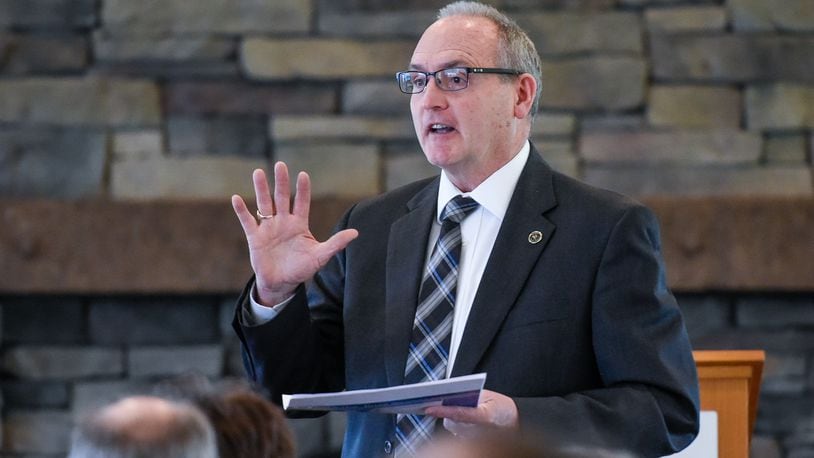And the top official isn’t going out quietly, blasting both state and federal education officials for micro-managing Ohio’s local school districts while at the same time under funding them.
Cagwin said he is confident about the future of Monroe Schools once he departs next spring, but worries about state meddling, lack of financial support of Ohio public schools, and the trend of increasing testing for students.
He expressed concern about “the sentiment in our state and federal governments that the politicians know more about what our children should learn than our local educators and local school boards.”
“There also seems to be the expectation that our teachers should focus more on the common core standards and test results than on our children. Our teachers are not threatened by accountability, but when they are expected to teach to tests that have no value to instruction, and that change constantly, it seems such a waste of valuable time for quality student and teacher interaction, not to mention the millions of taxpayer dollars that funnel to the test making and scoring companies,” said Cagwin.
“I am also disappointed that the funding of public schools in Ohio remains unconstitutional and inadequate. Our local taxpayers and our students would greatly benefit from the State paying their fair share of our school taxes,” he said.
Tom Leeds, president of the Monroe Board of Education, said Cagwin’s newly aggressive, public stance — which has been echoed earlier this year by fellow Butler County superintendents Tony Orr in Hamilton and former superintendent Sam Ison in Middletown Schools — has some “very valid points.”
“The state officials are not the professionals in education. These people out here in the local schools are the professionals in the field and they should be heard from by the state,” said Leeds.
About the Author
